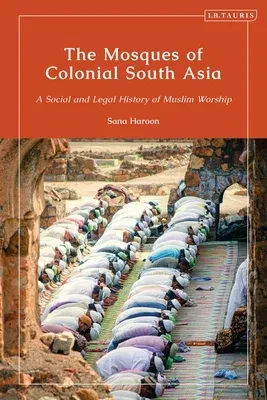Sana Haroon
(Author)The Mosques of Colonial South Asia: A Social and Legal History of Muslim WorshipHardcover, 29 July 2021

Temporarily out of stock
Free Delivery
Cash on Delivery
15 Days
Free Returns
Secure Checkout

Part of Series
Library of Islamic South Asia
Print Length
248 pages
Language
English
Publisher
I. B. Tauris & Company
Date Published
29 Jul 2021
ISBN-10
0755634446
ISBN-13
9780755634446
Description
Product Details
Author:
Book Format:
Hardcover
Country of Origin:
US
Date Published:
29 July 2021
ISBN-10:
0755634446
ISBN-13:
9780755634446
Language:
English
Location:
New York
Pages:
248
Publisher: